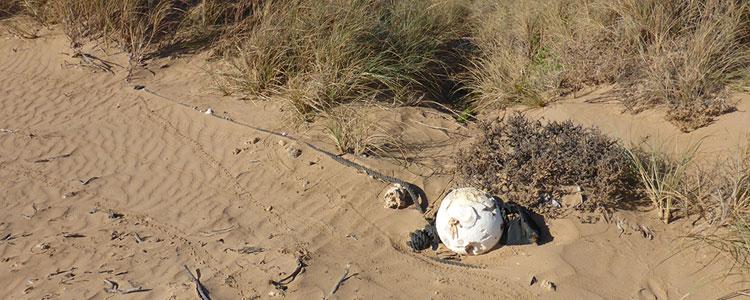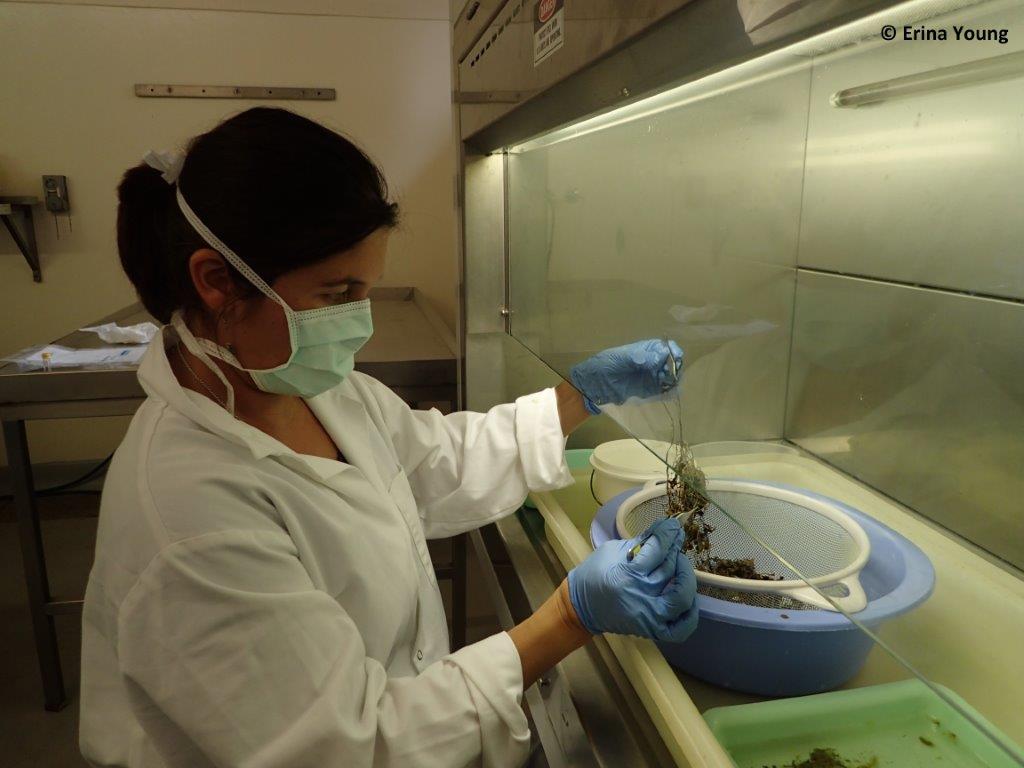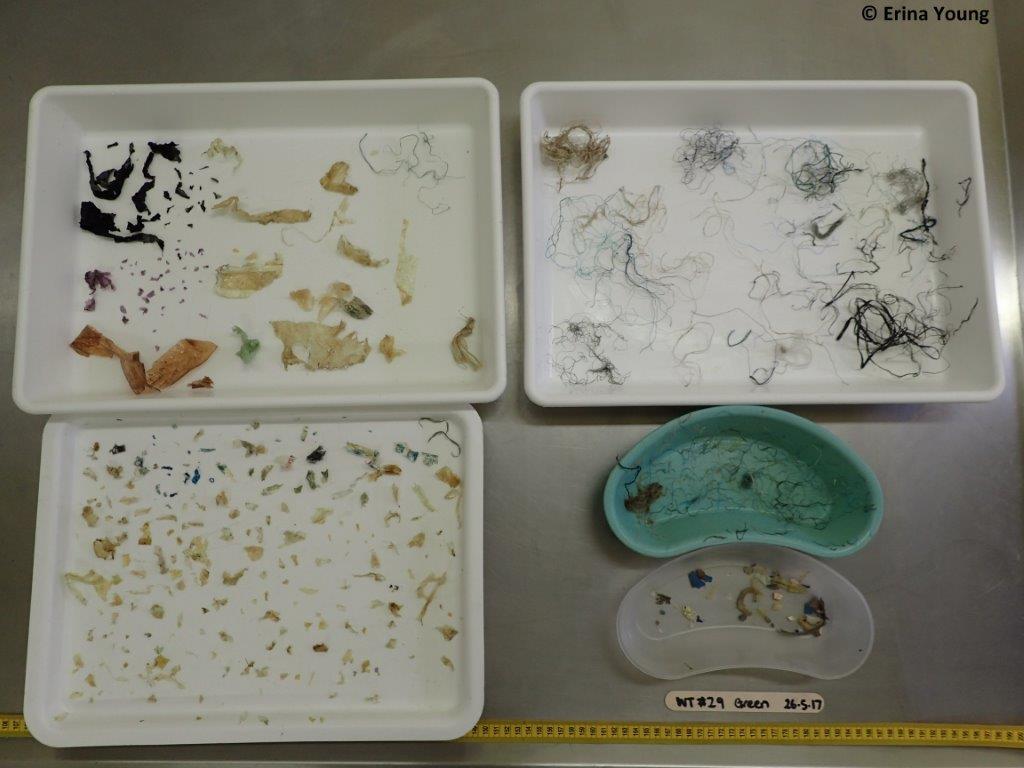
Marine debris is the discarded human waste in the ocean.
This can be anything from discarded fishing nets (ghost nets), which may be several kilometres long to nano-plastics which are 1000 times smaller than an algal cell.
Marine turtles are impacted if they get entangled in debris, which can lead to drowning or starvation; this is quite common in northern Australian waters, where currents assist in accumulating waste.
With smaller debris ingestion can be a problem. Particles may choke the animal, block the digestive tract or lead to poisoning.


(Photos courtesy of Erina Young)
What we are doing:
- Previous work has greatly helped to reduce accidental catch of turtles in fishing nets by developing and using turtle exclusion devices, and the fishing industry has widely adopted this turtle-friendly adaptation.
- A research project currently underway is looking at the baseline health of turtles in WA. This includes both trying to determine what a healthy population looks like, as well as looking at the causes of sickness and death in turtles. This means that when a turtle dies, or is euthanised due to very poor health, a necropsy (like an autopsy) is performed to see what caused the problem. Unfortunately, some turtles along the WA coast have been found with lots of different plastics in their digestive system, which often causes blockages and starvation.
- We work with and assist rehabilitation centres to help nurse turtles back to health and then release them back into the ocean.
What you can do:
- Reduce the amount of single use plastic products that you use, for example by using a keep-cup for take-away coffee, using re-usable straws or refusing straws, remembering your re-usable bags, rather than buying new bags at the shops.
- Get involved in beach clean-ups that are arranged regularly by various organisations, or simply pick up plastic rubbish on beaches, or wherever you find it.
- Be especially careful with plastic use around the coast – for example fishing line, or bait bags and make sure you dispose of them responsibly.
- Spread the word and let others know what the impact of plastics can be on our marine life.
